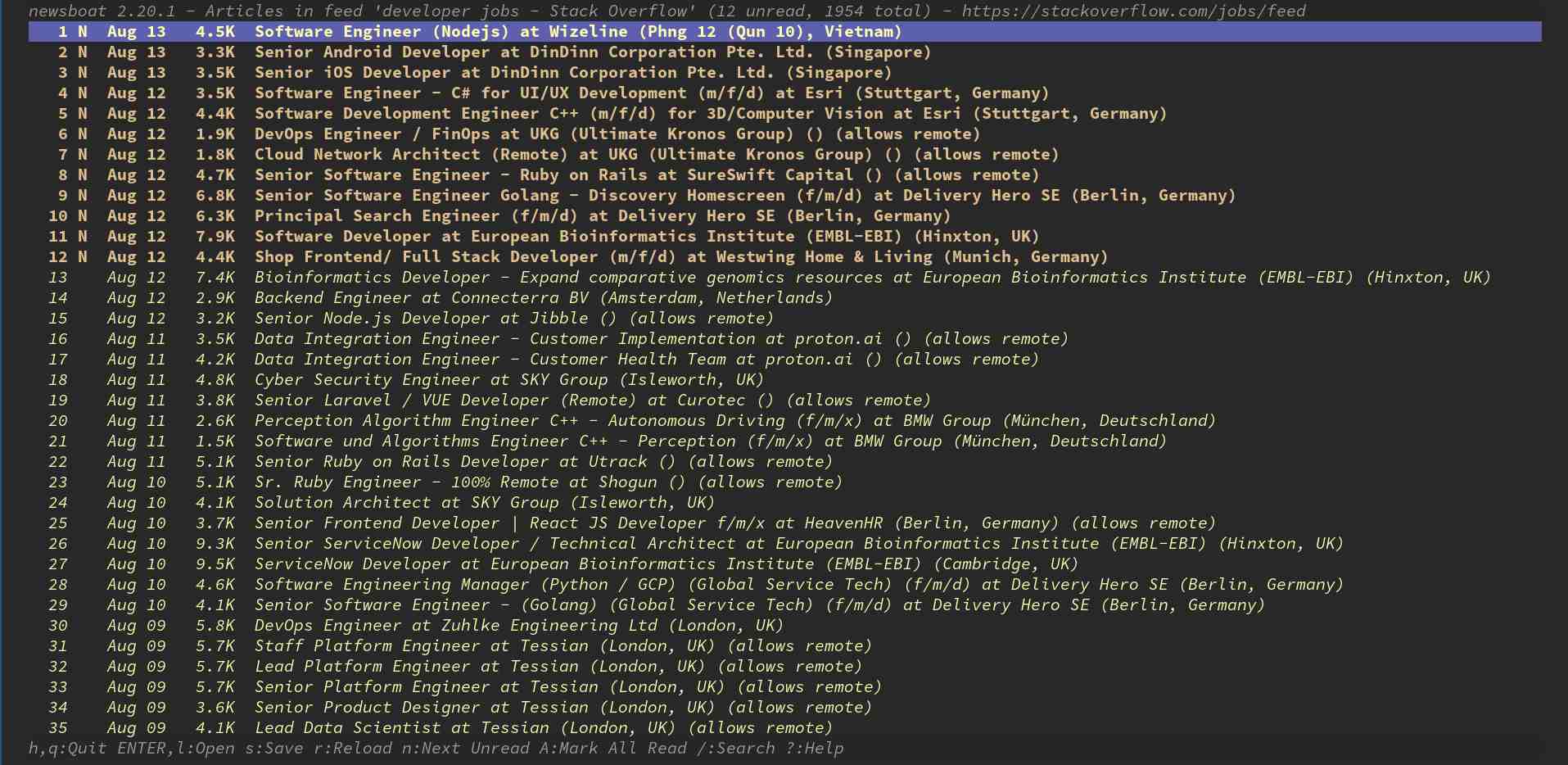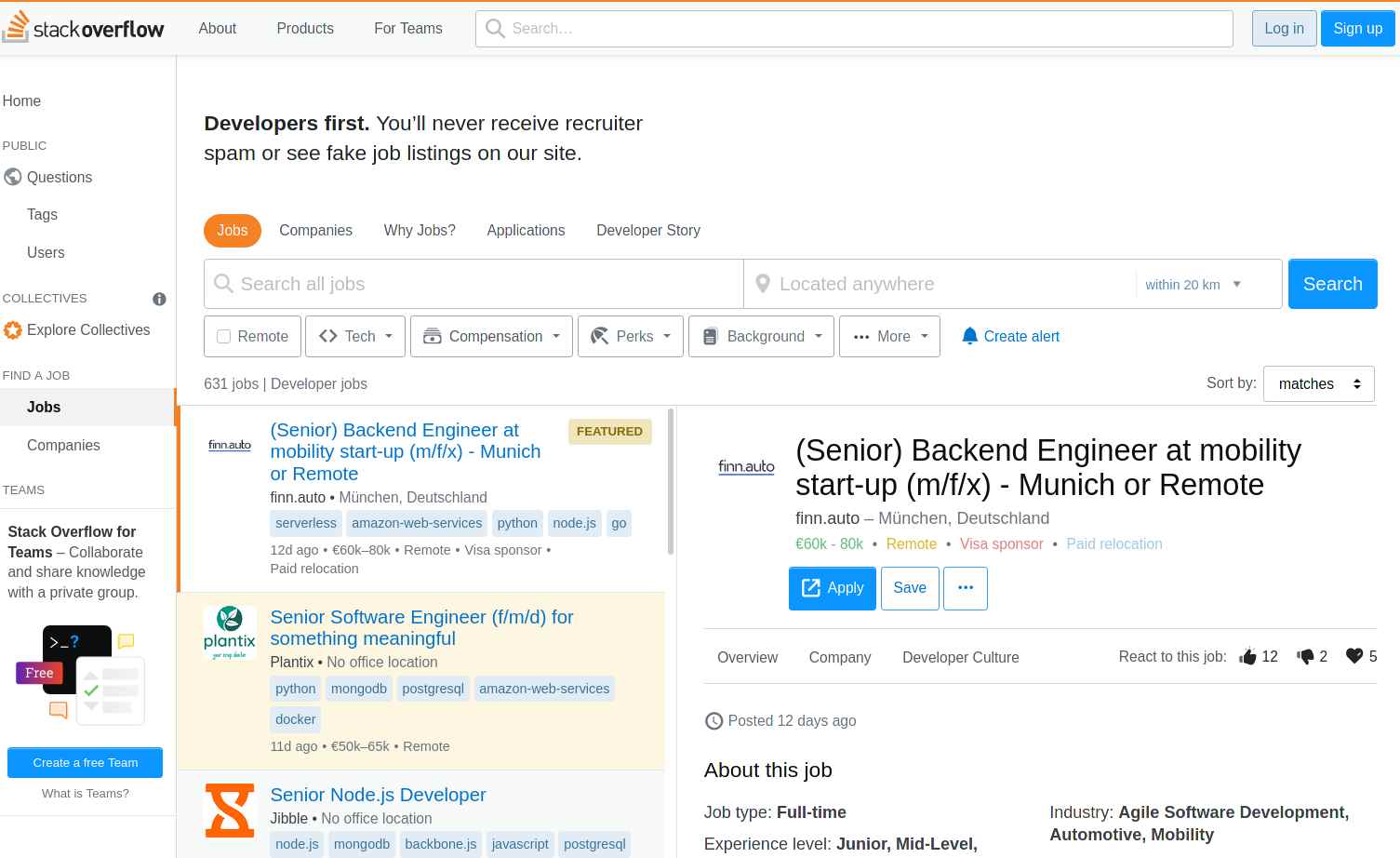Thoughts on how to find remote work in Cameroon
Remote work is the new norm there has never been a time like this, where as a SE you can make more than a decent living. This isn’t a know-it-all kind of post, I just wanted to write a bit about my experience, but it’s way too long (6 months+) so I will just share what worked and not for me. Before I forget, this is mainly for people like me doing computer science for the sake of doing it. Not because someone forced us or whatever. In short, geeks I guess. If you’re like me the perspective of spam applying and writing corresponding CVs is not very appealing. So, if CS is just a means to an end - not that there’s something wrong with that - but this might rub you off the wrong way (and you guessed right, no, I don’t look forward to enter management to “escape” coding). The job landscape in Cameroon is… saddening. While everywhere else the supply exceeds the demand, here it’s the exact opposite, which inevitably leads to abuse. Also, if you are still a student, this might not be for you directly, you can still read it to be prepared but there are many opportunities for students and I talk a bit about GSoC here. That being said, let’s get started.
Where to get jobs?
Most of the time looking for someone to fill a position is an algorithm like this:
for candidate in talent_pool:
if company.interviews(candidate):
# Passed all the interviews
break
else:
company.reject(candidate)
For those who hate Python, well I guess my post isn’t for you either :p
What I try to convey here is that there is an obvious advantage of applying early. Of course, the most efficient way is to know someone at the company who can share your CV before the job is even out or in short make jobs come to you, but hey, if you can do that, you don’t need this post anyway. The key here is to iterate quickly, so staying on top of information is crucial. There are many platforms online to find jobs:
- weworkremotely
- Hidden Gurus
- Pretty much everything with remote in the domain name.
Just to name a few, you can find more here, thanks Doreen Michele. As far as I am concerned, after using Linkedin (didn’t get much responses from here), AngelList and a bunch of stuff. I settled on using the RSS feeds of Stackoverflow Jobs and the monthly “Who is hiring” thread on Hackernews
Make jobs come to you
If I had to sum up this one, I would say: Make yourself known and heard. I always like to take the example of fasterthanlime when he quitted his job I want to note two things: first, He is in control, not only choosing the type of work (remote) but also the location (France) and people already share some jobs with him in the comments. To finally get a job less than a month later. This was so inspirational. Usually, I am not a social networks type of guy, but I’ve come to tolerate some of them with time. By the way, you can find me on Twitter and Linkedin mostly. Now if you are not famous (whatever that means) here are a couple of things you can try to “fake” it:
- Share your profile on the monthly “Who wants to be hired” thread on Hackernews
- Take Linkedin assessment tests and keep your profile up to date
- Get some reputation on Stackoverflow (might be a bit controversial but I like to think it helped me)
- Well, actually grow your Twitter/Blog/Whatever audience
- I recently discovered that you can mark yourself available for hire on github but I didn’t use that feature
My strategy
Sorry web designers, I don’t mean to shit on your work. But have a look at
What I see when I browse the Stackoverflow jobs RSS feed
 Versus the Web interface.
Versus the Web interface.

Using the RSS feed, at first glance I can see 35 jobs and I already know those that aren’t a good fit while on the web interface I barely see 3, and if I exclude the featured job, it’s just two. Not good at all. There’s also the online vs offline considerations, and I can talk about the advantages a whole day but I think you get the picture (pun intended).
A note about job interviews
If a company insist that I go to hackerrank or whatever before an interview with a real person. It is probably not a company I really want to work for anyway. Before throwing stones at me, let me explain. If you could just share your screen, show what you’ve got and call it a day, that would probably be good enough. Live coding is way better not only because the person is in a familiar environment and in an ideal world you don’t get to be judged if you forget how to iterate over a dictionary and you have to go to the documentation (true story). While with Hackerrank the process is totally dehumanized. As a rule of thumb for me, the faster you talk to an actual person, the better. I will take the time to say that I really appreciated companies using beapplied. Their process was really transparent and well-rounded, I wish them success, they sure deserve it.
Rejections
They will unavoidably happen, I mean, even the best of us get rejected sometimes. But a rejection can be useful in your journey. Don’t forget to always ask for feedback. After your hundredth feedbackless rejection or so, you can seriously doubt your skills. Not only that, if there’s something wrong you’ve been doing, a good feedback will point it out and you’ll correct it the next time. Too bad another company will profit from your upgrade.
Compensation
Compensation is one of the most important aspects and there are simply too many things to cover. A rough summary of my experience is that I have been ghosted many times when I asked for money first. So I double down on the “let them give you a number first”. If they refuse, it’s probably not a company you want to work for anyway. I leave you this awesome resource salary negociation, make more money, be more valued
Miscellaneous
Here are some stuff that came to my mind in no particular order:
-
Ask for someone to have a look at your resume. For this part, you can shoot me an email: blog(at)rmpr.xyz or join our telegram community (more on that later) people will be more than happy to help you.
-
Get a good Internet with good backup plans (in case of Eneo you know) This one is pretty obvious, but I just wanted to say that
CamtelBlue is the best consumer ISP. -
If you absolutely have to write a cover letter write your own instead of copy-pasting a template Here’s a link to one of my cover letters. This is just temporary, will get deleted very soon.
Stuff I didn’t try but they sure look good on paper:
-
Master a niche language Real expertise is very time-consuming and difficult to get, so, what you can do is learn a “niche” language: Clojure, Elixir, Scala come to my mind. Don’t get me wrong, I don’t ask you to fall for the hype, C is totally fine, and if you develop your skills enough you’re a rare breed. Python, JS, … all valid choices. You should just keep in mind that they (should) hire someone they feel can get the job done. It’s just that it might be easier with a language not everyone has a grasp on, because it reduce extensively the talent pool from which the company can choose from
-
Contribute to popular open source projects backed financially Off the top of my head: supabase, tracee, openpilot, zig, proton, wine, httpie, rotki, Mattermost. For more insight about making money with open source, you can have a look here and there.
Closing thoughts
The key is information and speed. Follow the good persons, maybe build an audience. I leave you with something I found to be true every single damn time: Finding a job is more a social activity than a technical one.
Edit (Wed Jul 12 11:27:51 PM CEST 2023):
With stackoverflow sunsetting jobs and developer story, my new recommendation is levels.fyi’s job board. Add your compensation there too, they are great.